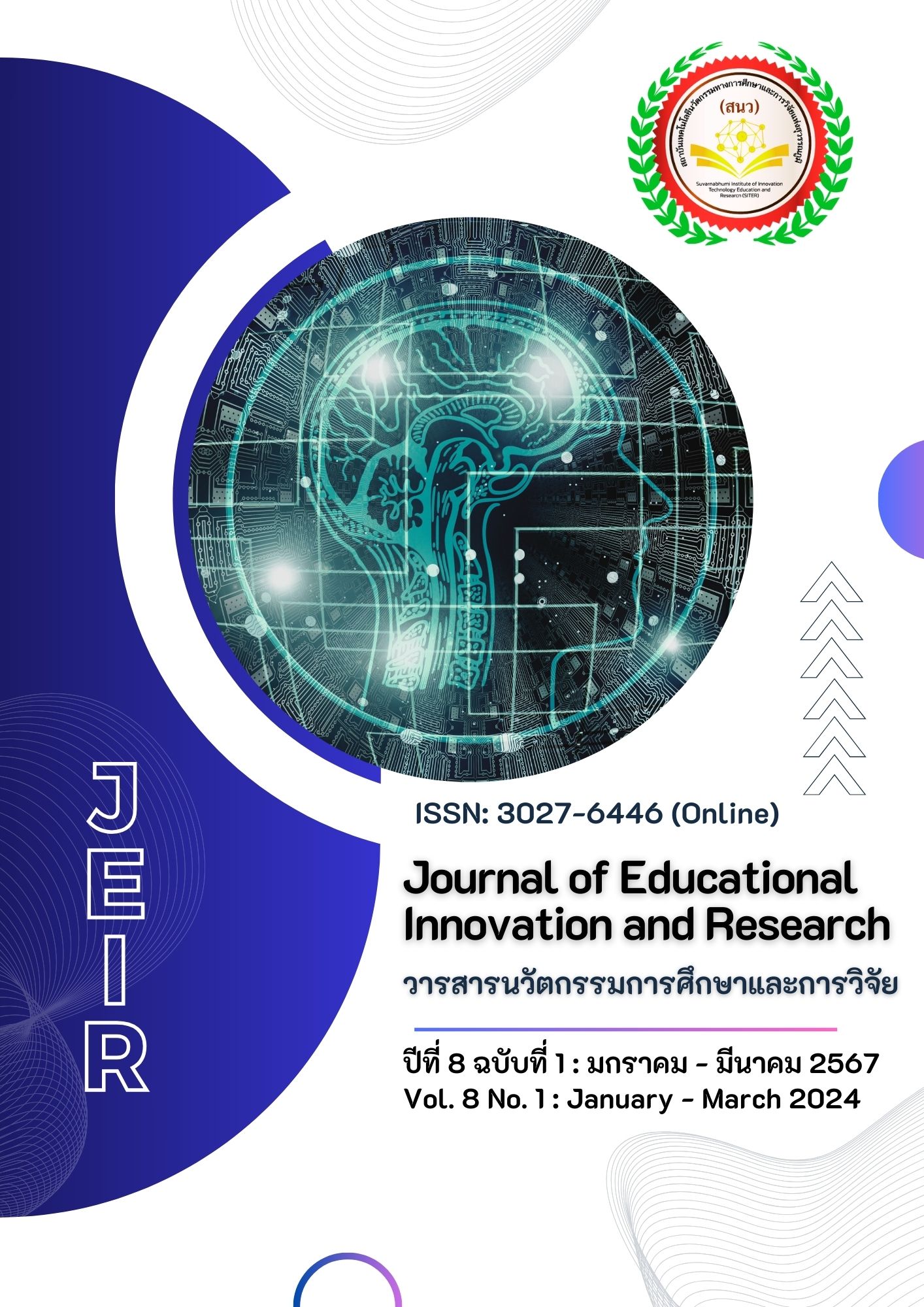Developing Soft Skills of International Students in Graduate Music Programs
Main Article Content
บทคัดย่อ
This Article aimed to study the application of soft skills development methods in the management of education for international students in graduate programs in music. This research is qualitative. The sample was 6 Ph.D. graduates international students in music graduate programs in Thailand. They were selected by purposive sampling method. The instrument for collecting data was an interview guideline-analysis data by Content Analysis.
The research results were found as follows; The soft skills in this study were problem-solving and creativity skills, readiness to learn and critical thinking skills, adaptability skills, self-motivation and positive attitude skills, communication skills, and teamwork skills. All soft skills can develop through in-class study and by living in different environments when they study abroad.
Article Details

อนุญาตภายใต้เงื่อนไข Creative Commons Attribution-NonCommercial-NoDerivatives 4.0 International License.
เอกสารอ้างอิง
Abdoli, A.S., Baharuddin, A., & Chan, P. (2013). Important Soft Skills for University Students in 21th Century. In 4 th International Graduate Conference on Engineering, Science, and Humanities (pp. 1088-1093). Malaysia; Universiti Teknologi Malaysia.
Akeke M. N. G., Oche P. E., Akuegwu B. A., & Ushie P. U. (2022). Entrepreneurial skills for business education graduates’ employability in Cross River State, Nigeria. Educational Research and Reviews, 17(4), 138-144.
Alyami, A., Abdulwahed, A., Azhar, A., Binsaddik, A. and Bafaraj, S. (2021). Impact of Time-Management on the Student’s Academic Performance: A Cross-Sectional Study. Creative Education, 12, 471-485.
Ghazali, G., & Bennett, D. (2017). Employability for music graduates: Malaysian educational reform and the focus on generic skills. International Journal Of Music Education, 35(4),588-600.
Gill, R. (2018). Building employability skills for higher education students: An Australian example. Journal of Teaching and Learning for Graduate Employability, 9(1), 84–92.
Haans, R., & Constant, P. (2016). Thinking about U: Theorizing and testing U‐and inverted U‐shaped relationships in strategy research. Strategic Management Journal, 37(7), 1177-1195.
Hivile, T. & Henrika, S. (2015). Expression of the leadership abilities of a music teacher. Pedagogy,119(3), 134-146.
Martin, A. J., Collie, R. J., & Nagy, R. P. (2021). Adaptability and high school students’ online learning during COVID-19: A job demands-resources perspective. Frontiers in Psychology, 12, 702163.
Tang, K. N. (2018). The importance of soft skills acquisition by teachers in higher education institutions. Kasetsart Journal of Social Sciences, 41(1), 22–27.
Yoon, S., & Kim, H. C. (2018). Feeling economically stuck: The effect of perceived economic mobility and socioeconomic status on variety seeking. Journal of Consumer Research, 44(5), 1141–1156.


